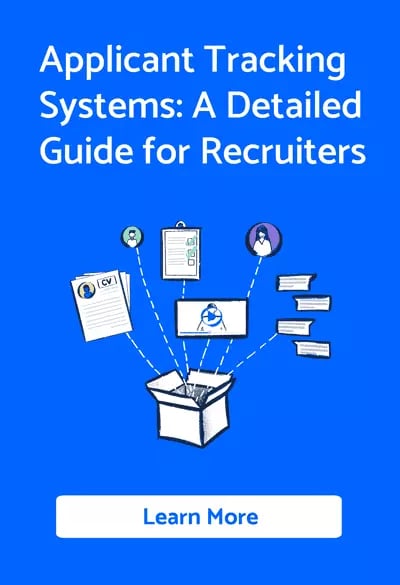Employer branding is no longer a luxury; it’s a necessity, especially for startups. While larger corporations have the advantage of established reputations, startups need to be intentional in building their employer brand from the ground up. This involves showcasing not only what the company offers but also its core values, work culture, and long-term vision. As an SMB, positioning your startup as an attractive place to work can significantly affect the quality of talent you attract and retain, which ultimately impacts business success.
For more insights on how employer branding plays a crucial role in hiring success, check out this employer branding checklist from GoHire.
Why employer branding matters for startups
Startups often face the challenge of competing with established companies for top talent. Without the resources to offer hefty salaries or benefits, startups can leverage their employer brand to create a unique value proposition that appeals to prospective employees. According to LinkedIn's Employer Branding Statistics, companies with a strong employer brand see a 50% reduction in hiring costs and are able to hire 1-2x faster than those with a weak or non-existent employer brand.
But what exactly is employer branding? It’s the image and reputation your business projects to the world. Your branding is reflected through employee reviews, the application process, social media presence, and even how you respond to candidate inquiries. For startups, this can make a considerable difference. As a founder or operational manager, investing in employer branding is not just about showcasing perks; it’s about shaping how your startup is perceived by both current and potential employees.
Creating a compelling employer brand narrative
A strong employer brand starts with a compelling narrative. This narrative must resonate with your target audience—talented individuals who are drawn not just to your product but also to the culture and values your startup embodies. Your narrative should answer the question: "Why should a potential employee choose us over a larger company?" A good narrative is honest and aligns with the company’s actual culture, long-term goals, and mission.
For instance, startups with a focus on innovation and disruption should highlight how their work environment fosters creativity and new ideas. Additionally, founders can weave stories about personal sacrifices and the drive to create something unique. This resonates with potential hires, particularly those who are entrepreneurial-minded themselves. A well-crafted career page can support this. You can take inspiration from the best career page examples available on GoHire.
It’s worth noting that about 86% of candidates check out your company's social media presence and career page before even applying for a job, according to TalentNow. By focusing on storytelling and creating a seamless experience across all channels, you can boost your startup's appeal.
How to stand out in a competitive market
Startups often operate in highly competitive spaces, and standing out is crucial. A successful employer brand sets your startup apart from others, creating an emotional connection between the company and potential employees. When candidates feel a personal connection with your brand, they’re more likely to consider working for you. A good way to establish this connection is by engaging with your audience through authentic content. Share behind-the-scenes videos, employee testimonials, and company milestones.
Transparency is key here. Candidates value honesty and openness about what working at your startup entails. Startups may not have all the bells and whistles that larger corporations offer, but they often have something even more valuable—a sense of purpose and a clear mission. That’s what you should promote. Startups that highlight flexibility, rapid growth opportunities, and a collaborative work culture are more likely to appeal to top talent.
Additionally, showcasing your startup on job boards that are popular in your region or industry can make a difference. GoHire has a list of the top job boards in Singapore that could be useful for expanding your reach.
How to manage employer branding with limited resources
A common misconception is that employer branding is expensive. While established businesses might have larger budgets to invest in branding campaigns, startups can build a strong employer brand without breaking the bank. Leveraging your existing resources, such as social media, and focusing on employee advocacy can be highly effective. Your employees are your biggest brand ambassadors. Encourage them to share their experiences on platforms like LinkedIn or Glassdoor.
Moreover, you can streamline the hiring process with an applicant tracking system (ATS). This helps ensure that even with limited resources, your candidate experience is smooth and professional. For example, GoHire's ATS allows startups to automate many aspects of recruitment, making it easier to maintain a polished employer brand.
Employer branding during the hiring process
Employer branding doesn't stop once a candidate is hired. It's an ongoing process that extends throughout the hiring and onboarding experience. From the first touchpoint with a potential employee—whether through a job listing or your website—right through to their onboarding, your branding should be cohesive and consistent.
Studies show that 69% of candidates wouldn’t accept a job offer from a company with a bad employer brand, even if they were unemployed. This is why the application process is critical. A frustrating experience can turn potential talent away. Implementing an ATS like GoHire’s can streamline applications, interviews, and communications, enhancing the candidate's experience.
Additionally, data-driven hiring practices can improve your employer branding. Using analytics, startups can fine-tune their recruitment strategy by identifying what works and what doesn’t. More importantly, hiring decisions should be informed by data, not gut feelings. This ensures that your recruitment process remains fair and competitive.
Maintaining employer branding post-hiring
Once you’ve hired the right people, maintaining your employer brand is about delivering on your promises. Employee engagement should remain a priority as it directly influences retention rates. A study by Gallup shows that companies with higher employee engagement see a 59% reduction in turnover rates.
Your employees’ experiences with your startup, from work culture to leadership interactions, shape how your employer brand is perceived in the long term. Ensure regular feedback loops, provide opportunities for growth, and celebrate achievements—both personal and professional. Such actions build a sense of loyalty and reinforce your employer brand internally. For more tips on building work culture, read this article on creating a work culture that attracts top talent on GoHire.
The long-term impact of a strong employer brand
Employer branding is not a one-off project; it’s a long-term investment that pays dividends in many ways. Companies with a strong employer brand see 50% more qualified applicants and are 1.5 times more likely to retain employees for at least five years compared to those with weak employer brands. For startups, this is especially important as high employee turnover can be costly, both in terms of recruitment expenses and lost productivity.
A well-established employer brand not only attracts talent but also creates brand advocates. Employees who feel connected to your company’s mission will likely promote your brand in their professional circles, helping you build a strong talent pipeline for future hires.






